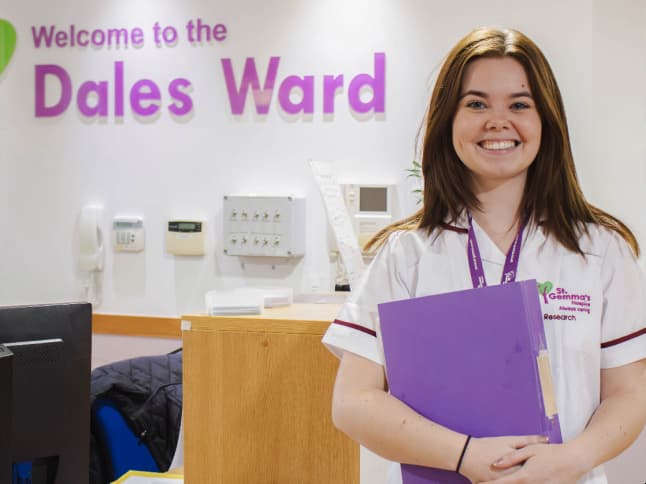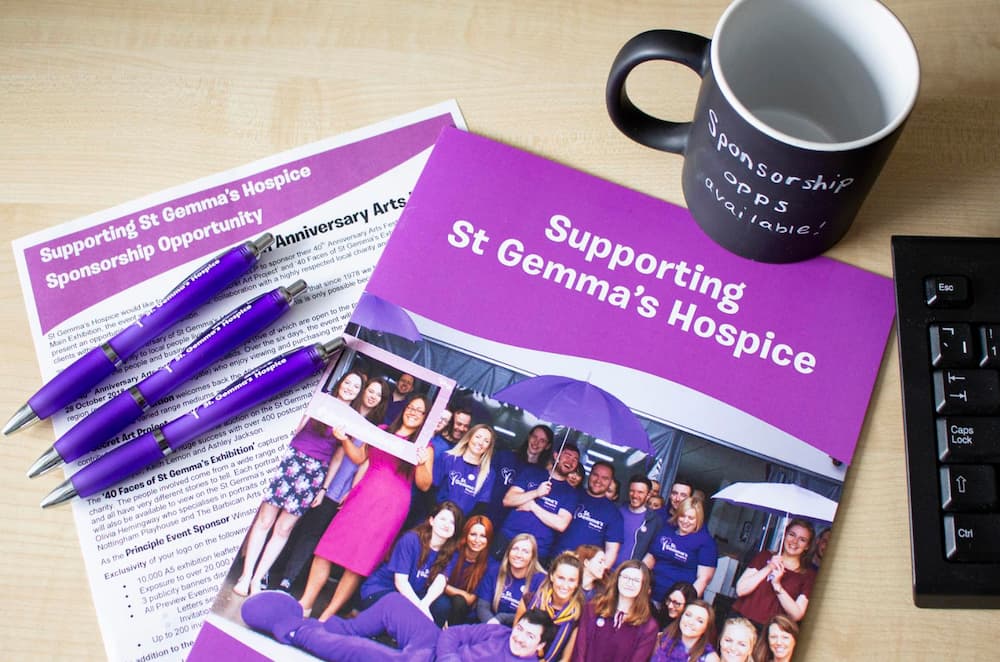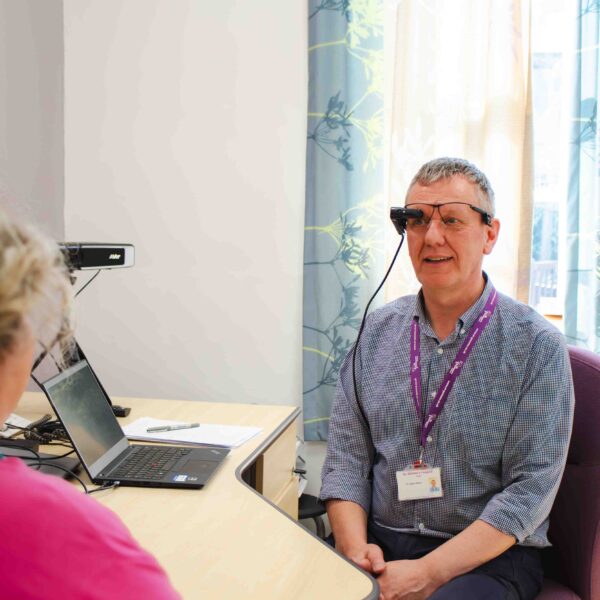As a valued supporter we really want to keep you posted about news and events across St Gemma’s and to share how your support benefits local patients and their families. If you would like to receive email updates please click to sign up to our mailing list.
Embracing innovation and ways to improve palliative care learning and teaching are at the core of the St Gemma’s Academic Unit of Palliative Care. We have long welcomed medical students to the Hospice and believe this plays an essential role in educating future doctors, regardless of whether they go on to specialise in palliative care or not.
However, the opportunity for students to interact with patients receiving palliative care can vary. In some parts of the UK (and internationally), students may not always have the opportunity to meet the right patients during their medical training.
The Virtual Clinical Experience
The Virtual Clinical Experiences Platform (VCE) was developed to solve the issue of skills gaps in a student’s learning by allowing them the opportunity to observe scenarios they don’t often get to see. Students join clinical consultations remotely while still being able to interact in real time with doctor and patients.
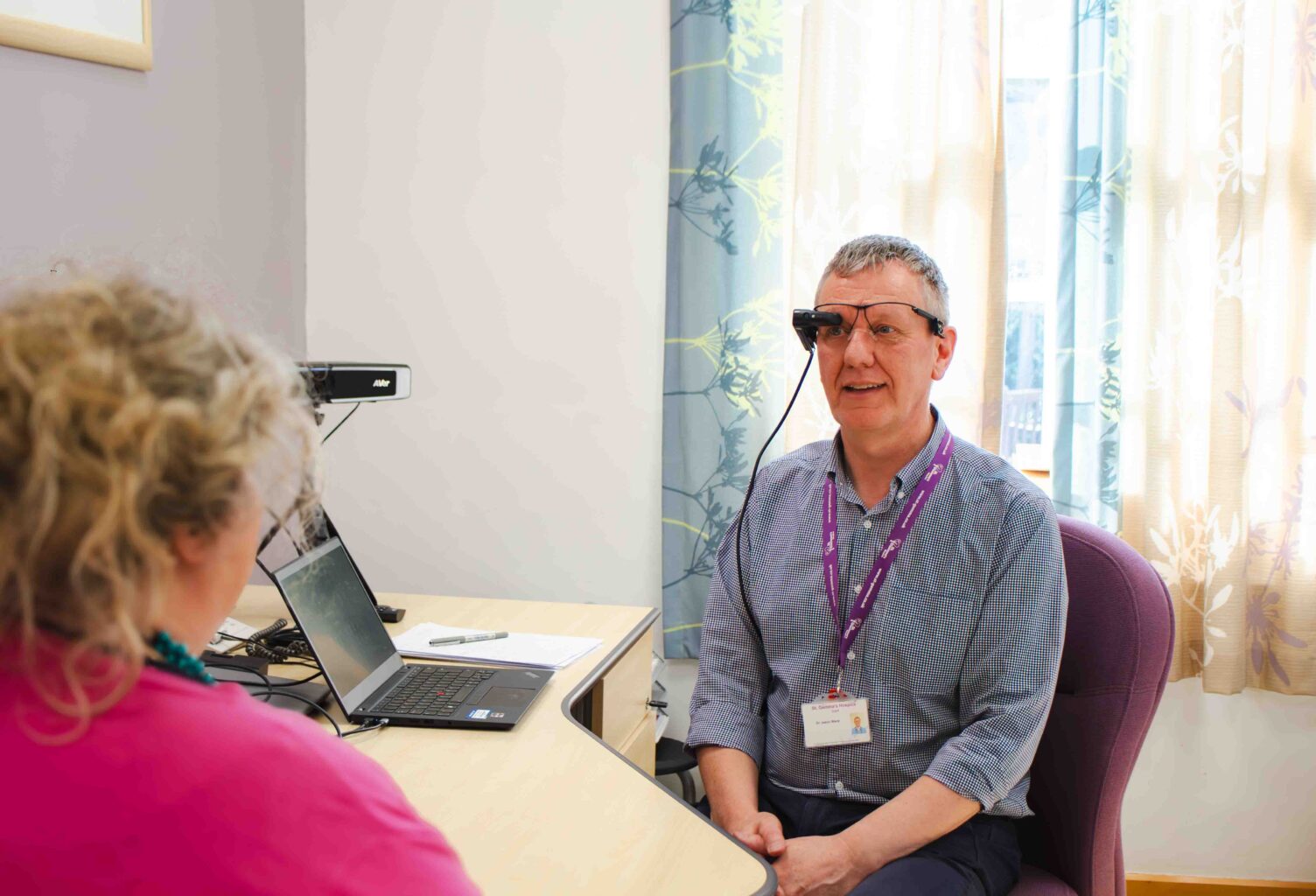
Developed by Global Health Education Group, the platform and digital medical devices give students a “front row seat” during a consultation with minimal disruption for the patient. Smart glasses, cameras, and a digital stethoscope allow students to be immersed in the consultation.
The technology is built with patient safety and wellbeing in mind. Before participating, students must complete a preparatory course and commit to the full duration of the session to avoid disruptions. Patients provide full consent before any consultation begins and, crucially, can signal at any time if they feel uncomfortable, allowing the session to be paused.
During the Virtual Clinical Experience, students have the opportunity to ask questions and interact with the patient. Sessions are also followed by a debrief with the clinician to consolidate their learning.
We have been running pilot sessions using the Virtual Clinical Experience with students at the University of Central Lancashire.
During these initial sessions, patients have given positive feedback reporting that they didn’t find the tech intrusive and appreciated the lower risk of infection compared to students joining in-person. A family member of a patient said they could “ignore the students” and focus on talking without feeling self-conscious, allowing students to observe a more natural interaction.
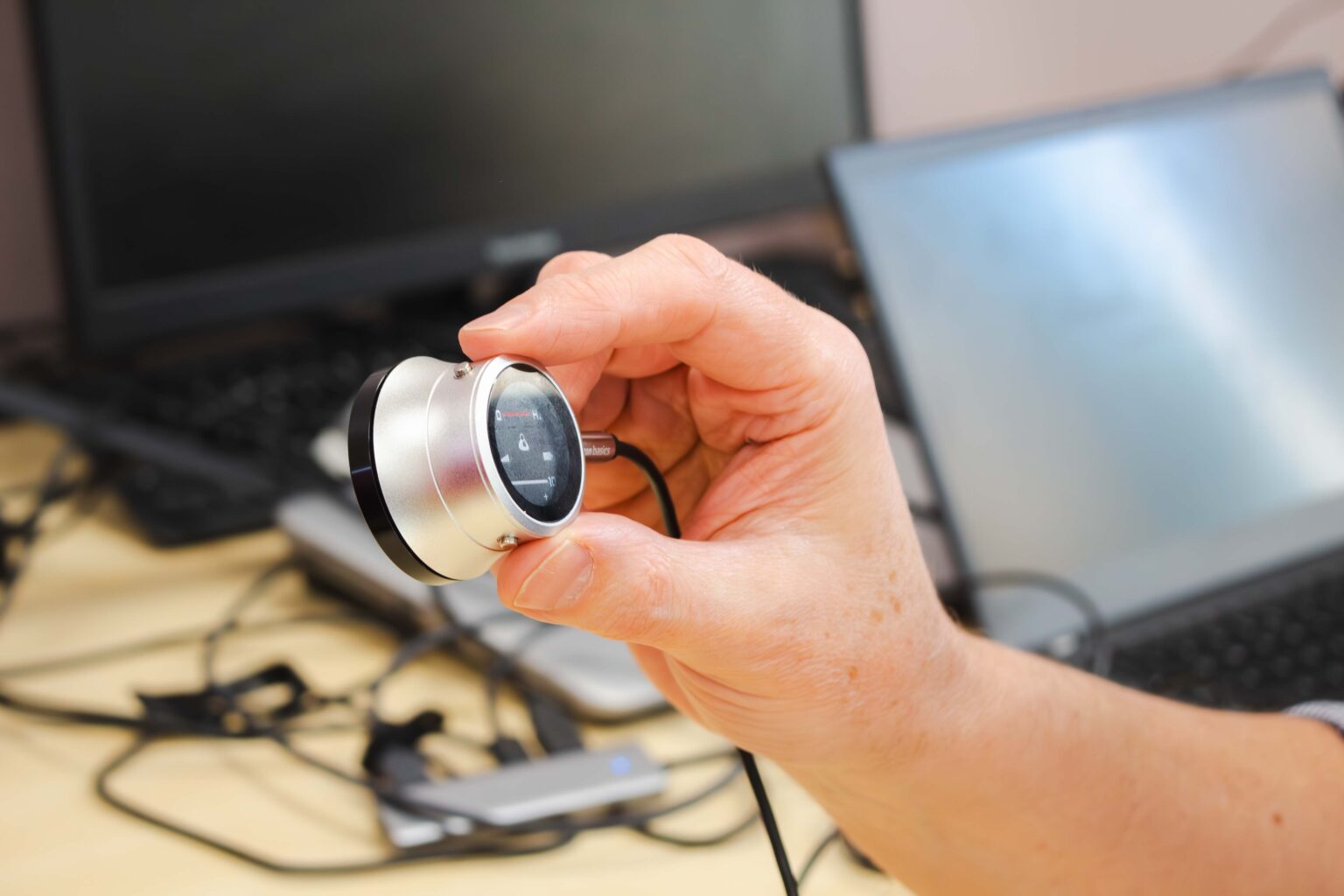
Further Benefits
By allowing more students to come together for a session, the technology facilitates doctors and nurses studying side by side, fostering early collaboration that will be vital during their professional careers.
This ground-breaking initiative is likely a first for a hospice globally. By removing geographical barriers, it expands access to palliative care education, particularly in regions where such training is not readily available. In the longer term, we hope the VCE will allow more students access to palliative care training and deepen their knowledge and skills in this area regardless of location.
At St Gemma’s Academic Unit of Palliative Care, we’re committed to reimagining how future healthcare professionals learn about and engage with palliative care. The introduction of Virtual Clinical Experiences marks a significant step forward in ensuring that every medical student, regardless of where they study, has meaningful access to compassionate, high-quality palliative care education.
We are excited to be part of this pioneering project and look forward to sharing our learning and expanding this approach to benefit more students, educators and, most importantly, patients.


